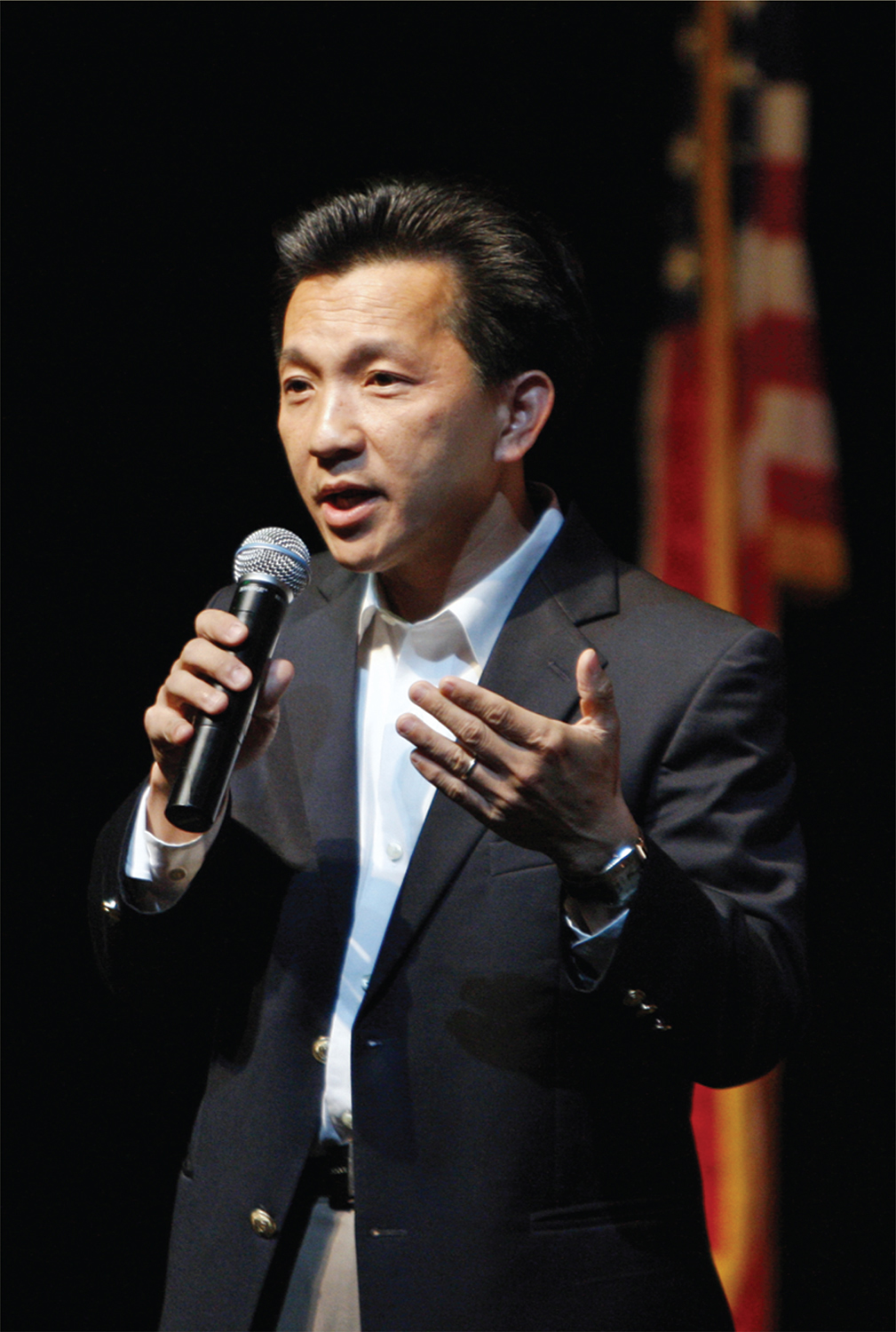Seeking the American Promise: “From the Fall of Saigon to the House of Representatives”

Near the end of April 1975, eight-
South Vietnam’s capital was in an uproar, with tens of thousands of people who had worked for or cooperated with the Americans seeking escape. Two days after Anh’s plane departed, rockets and artillery fire heavily damaged the airport. Thereafter helicopters shuttled thousands out of Saigon, as thousands more made for the docks to get passage on any seaworthy vessel, seeking safety in the U.S. Seventh Fleet, anchored just beyond Vietnamese territorial waters.
The ships and planes headed for a U.S. military base on Guam, where large camps had been rapidly constructed. Anh found himself among some 64,000 other refugees in a huge tent city where he located an uncle. Three times a day, the refugees lined up for eggs and bacon, hamburgers, mashed potatoes, fruit cocktail, and other classics of the American diet. The new food was part of a U.S. program dubbed “Operation New Life,” to deal with the refugees, who by summer’s end numbered 130,000.
After three weeks on Guam, Anh and his uncle joined an airlift of five hundred flights taking refugees to four military bases in the United States. The two landed at Fort Chaffee, an army reserve base in northwest Arkansas. There they received a limited program of English-
The U.S. plan for the initial wave of refugees was to disperse them in small numbers to communities in all fifty states. Charitable groups were encouraged to sponsor refugees with minimal government assistance—
By 1978, a second and larger exodus began leaving Vietnam by water. Some 20,000 “boat people” per month paid extortionate fees and endured great hardship in crossing the South China Sea. As many as 100,000 people perished, but some half a million came to the United States, aided by the Refugee Act of 1980, which accepted the international definition of a refugee as a person unable to return to his or her country because of a “well-
An able student, Cao completed high school and earned degrees in physics at Baylor University, in philosophy at Fordham University, and in law at Loyola University. Along the way, he continued to practice Catholicism, the religion of his childhood in Saigon, and he spent six years in a Jesuit seminary, doing missionary work among the poor. He became an immigration lawyer, serving the Vietnamese community in New Orleans. After Hurricane Katrina destroyed his house, he developed political ambitions and ran as an independent for the Louisiana state legislature.
Cao failed in that bid, but Republican Party leaders in Louisiana tapped him to run for Congress in 2008 in a heavily Democratic district. Cao agreed to run as a Republican, citing the debt he felt to John McCain, that year’s Republican presidential candidate, who had spent five and a half years in a Hanoi POW camp. In a close election, Cao defeated the incumbent (who was embroiled in corruption charges) and thus became the first Vietnamese American to be elected to the House of Representatives.
In office, Cao proved to be an unconventional Republican, one who called out Wall Street bankers in hearings and cast the lone Republican vote in 2009 for the first version of what became Obamacare. His 2010 campaign for reelection was an uphill battle, and he lost decisively to a Democrat. Cao has returned to his law practice and his young family in New Orleans. In a New York Times interview before the election, he credited his philosophical studies for teaching him that “life is absurd but one cannot succumb to the absurdity of it,” a fitting adage for his remarkable life story.
Questions for Consideration
- Why did Cao have to leave Vietnam?
- What made it possible for Cao to get to and succeed in the United States?
Connect to the Big Idea
In addition to the hundreds of thousands of Vietnamese immigrants who arrived in the United States, what were other unforeseen consequences of the Vietnam War?